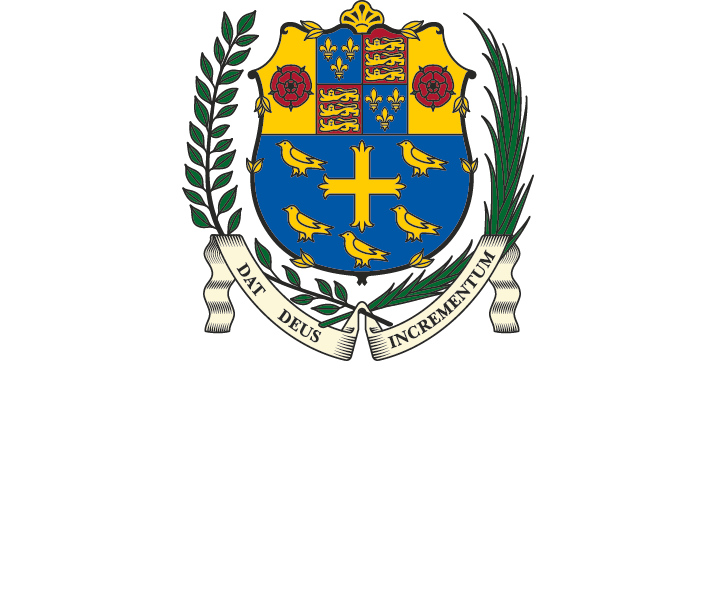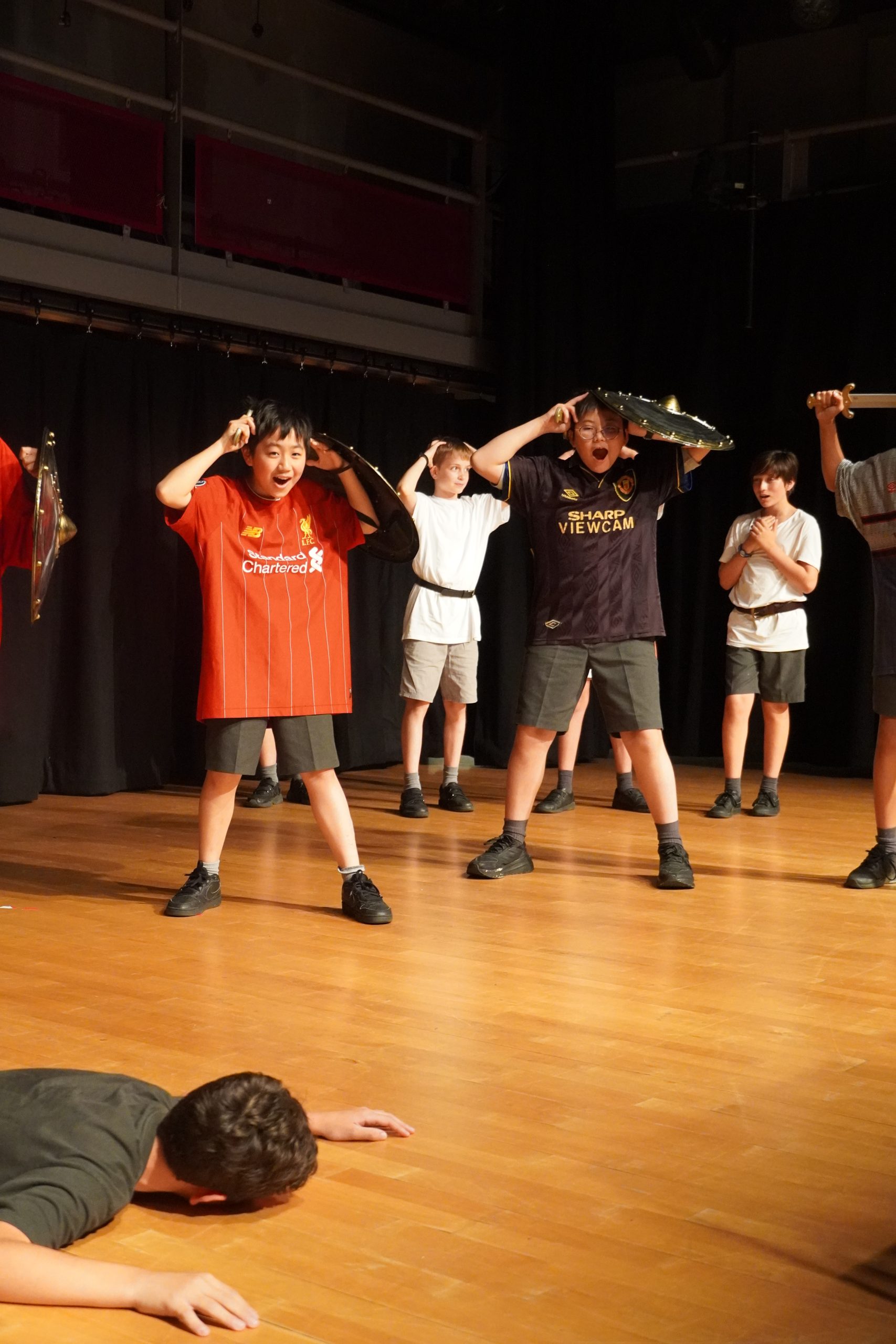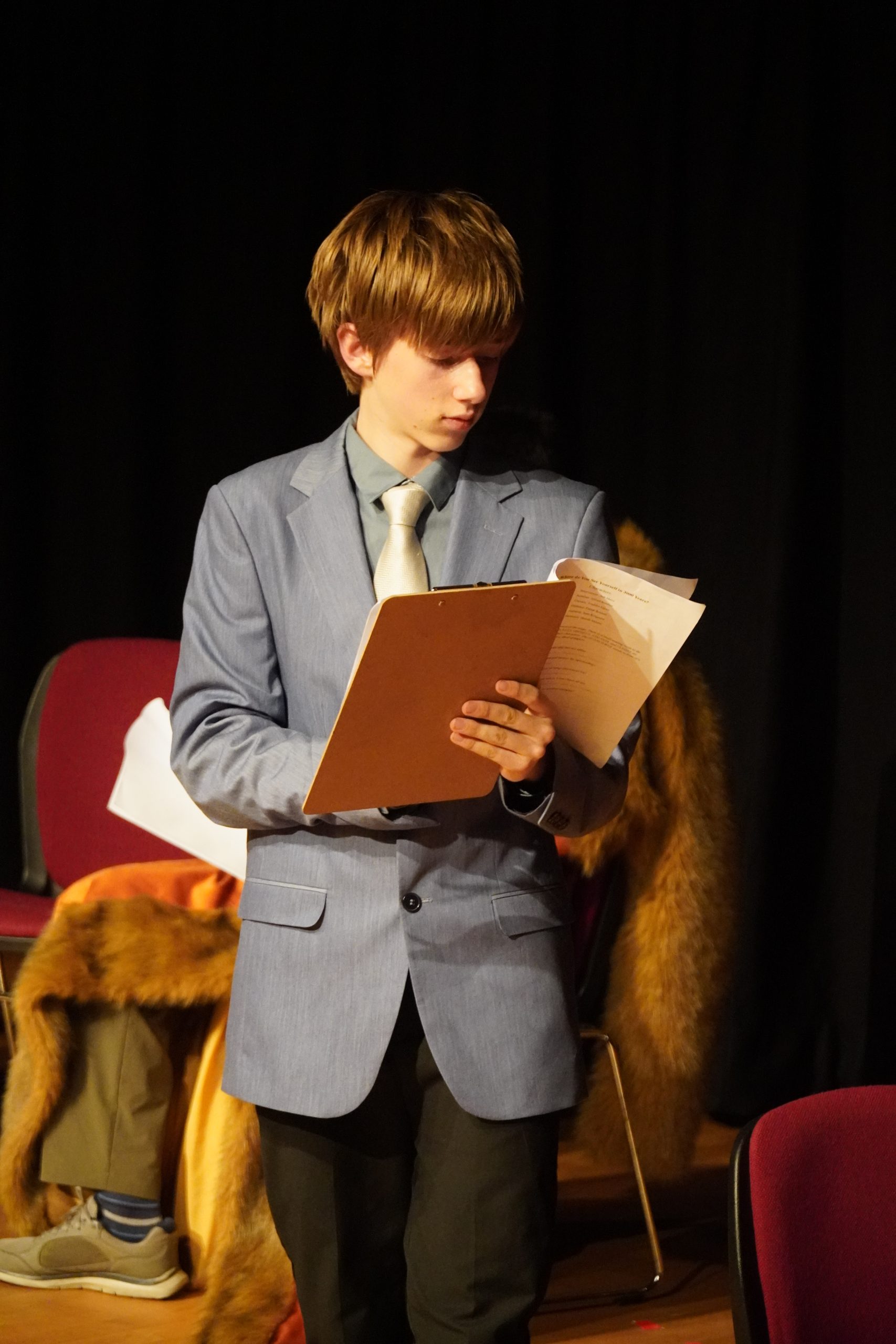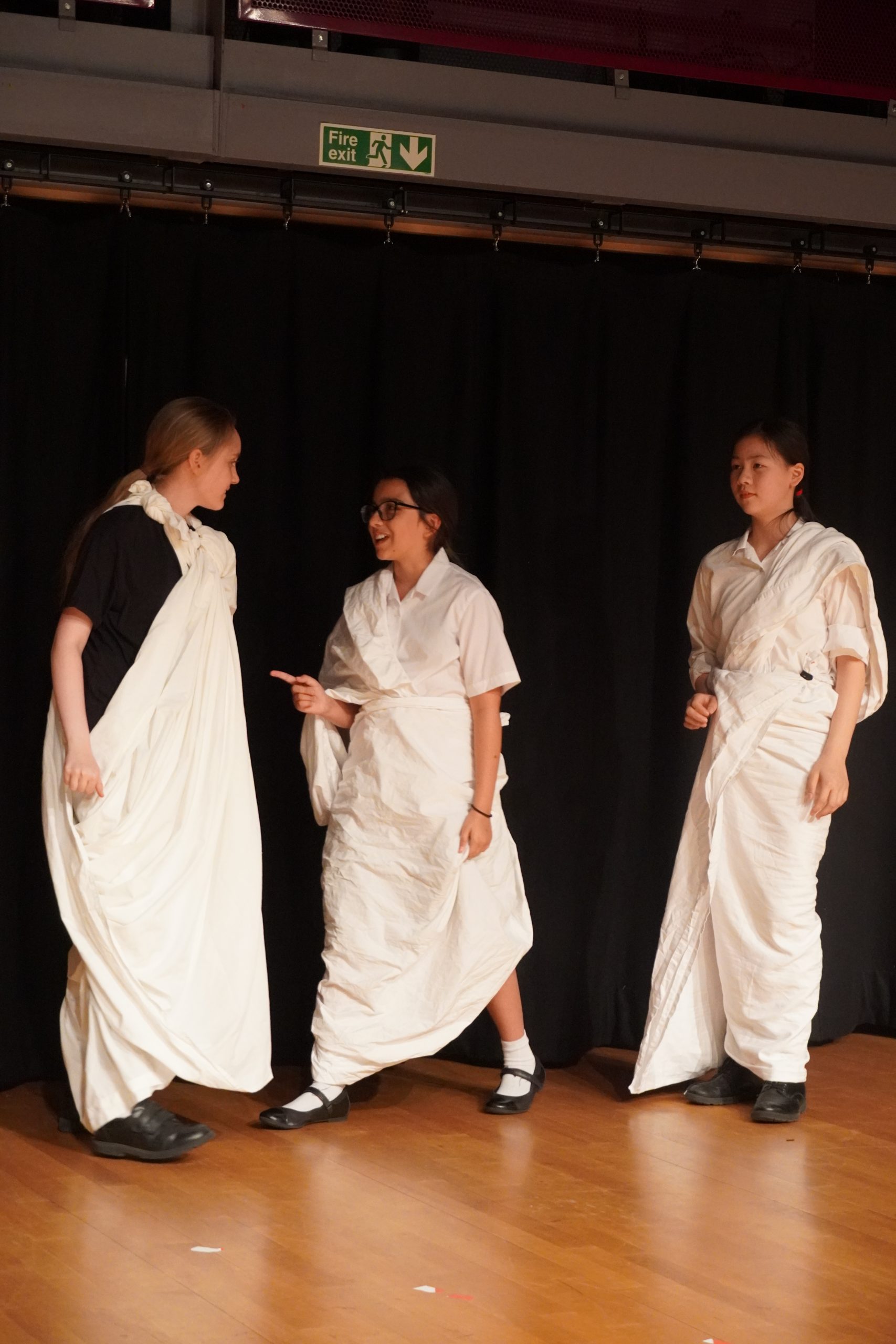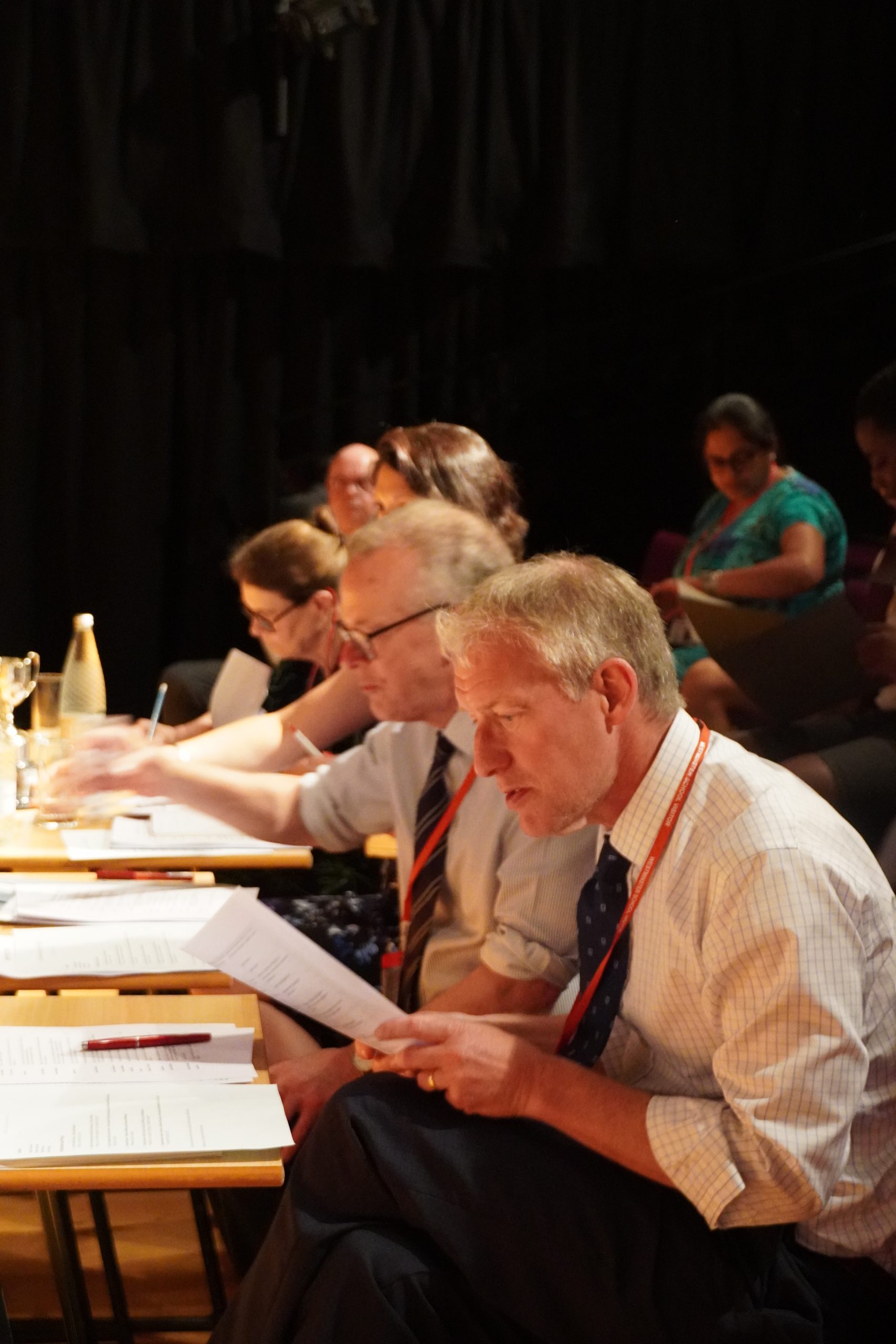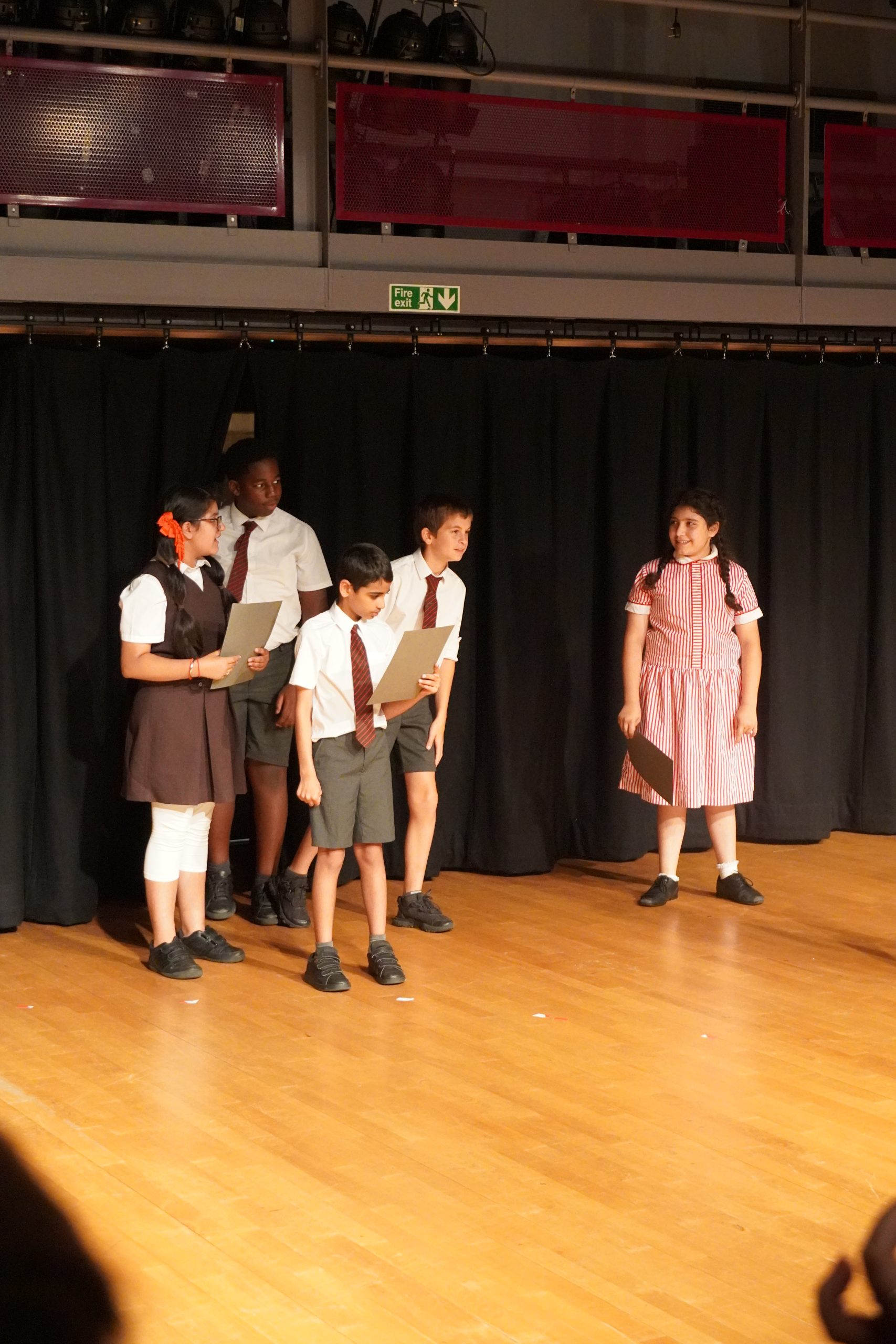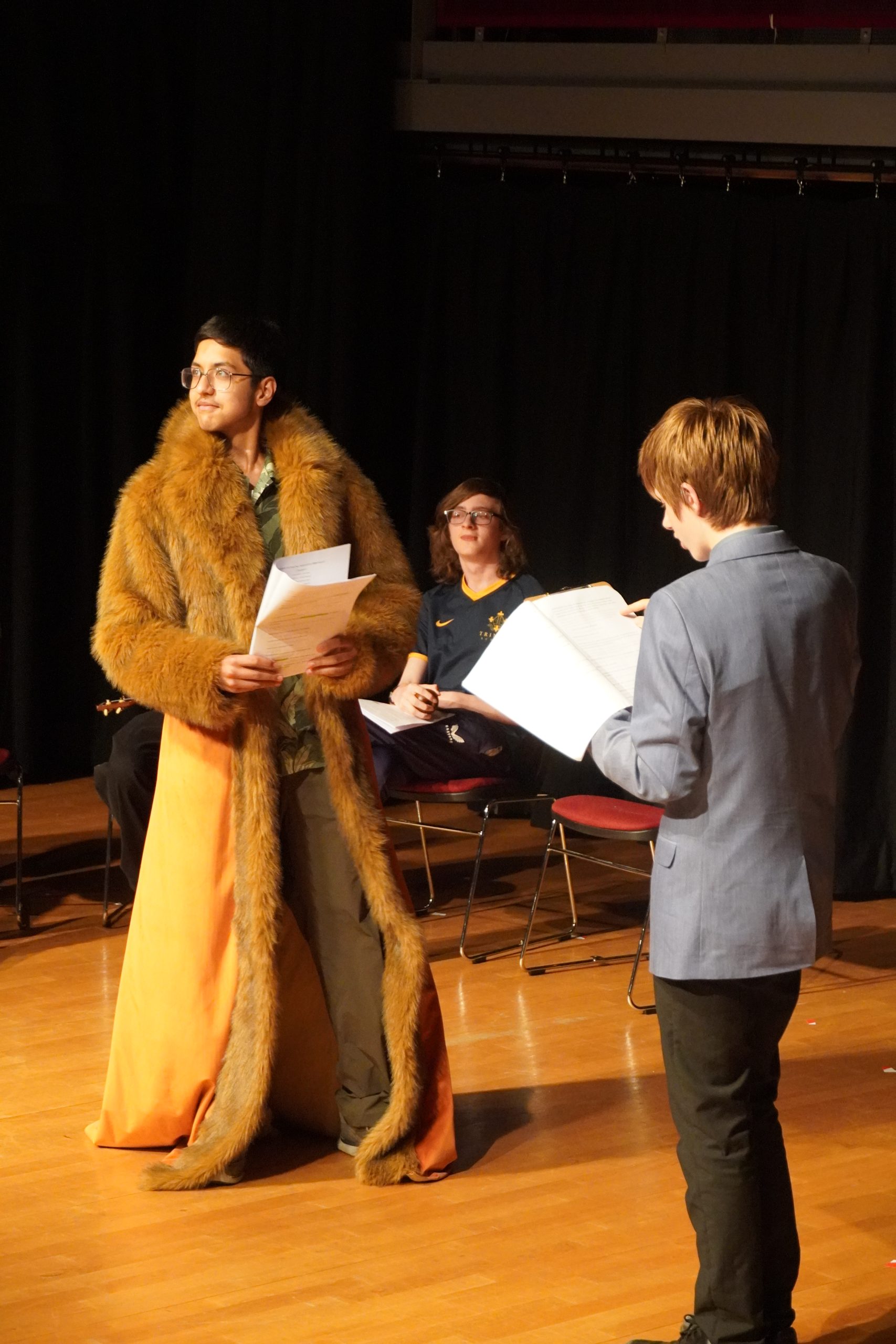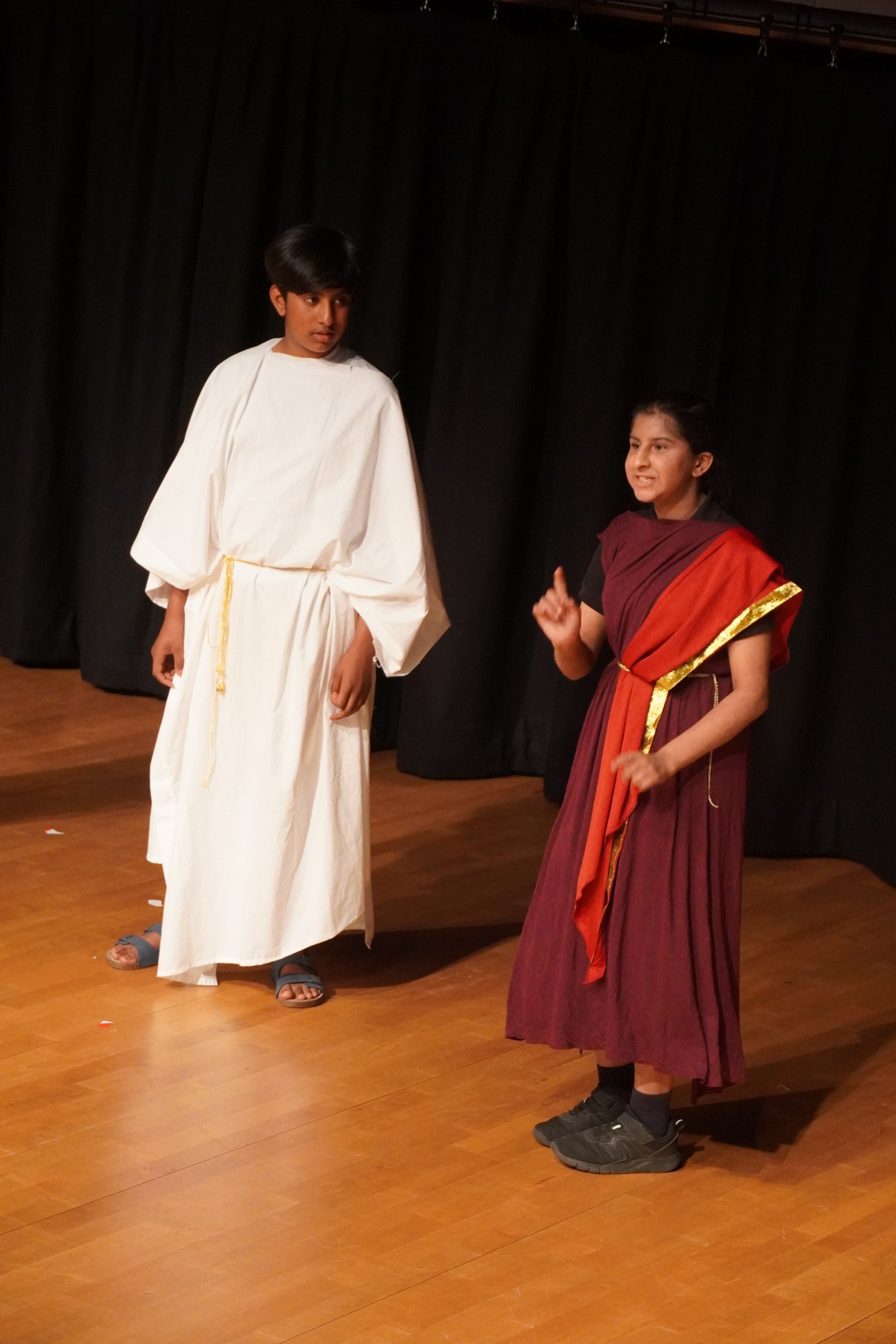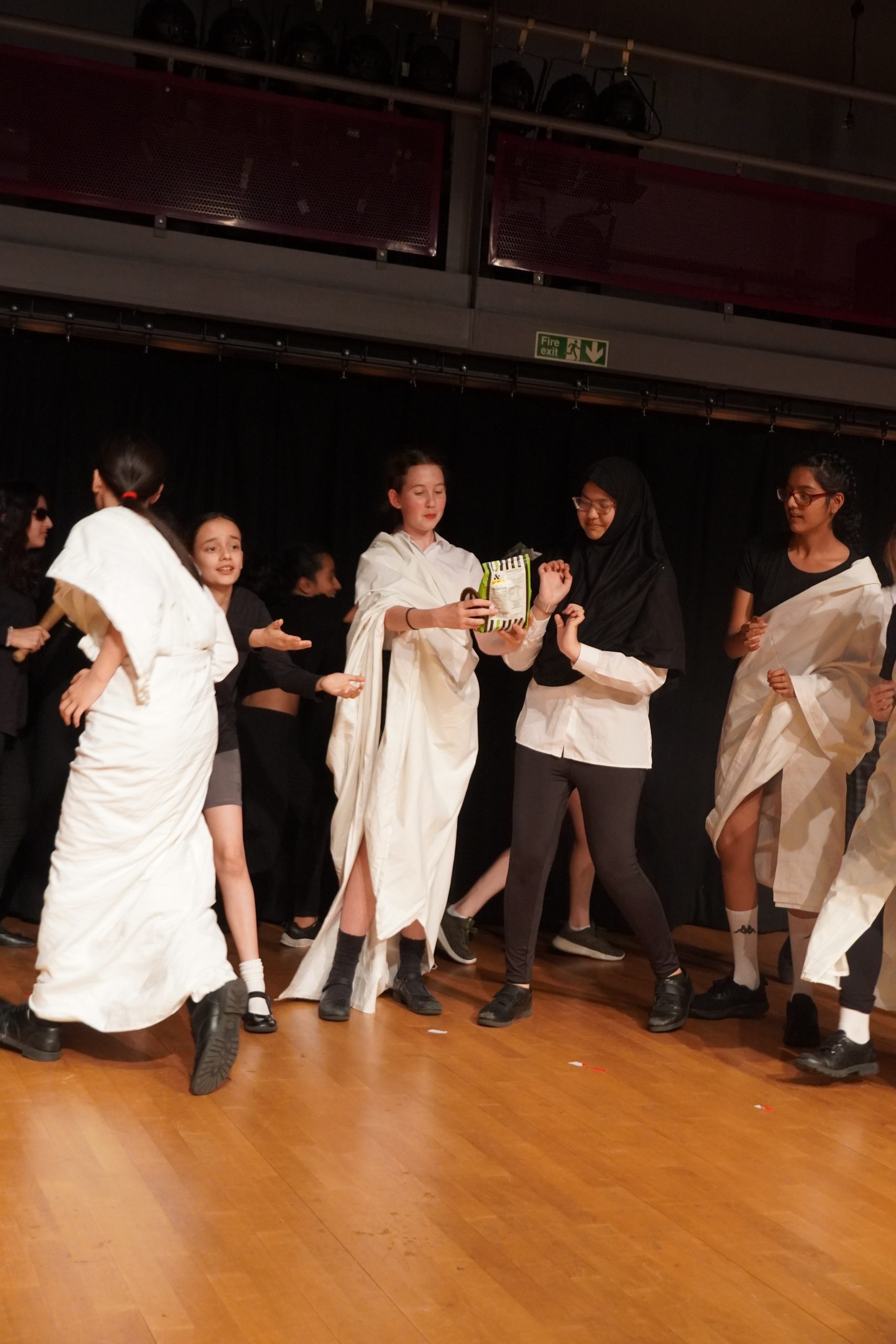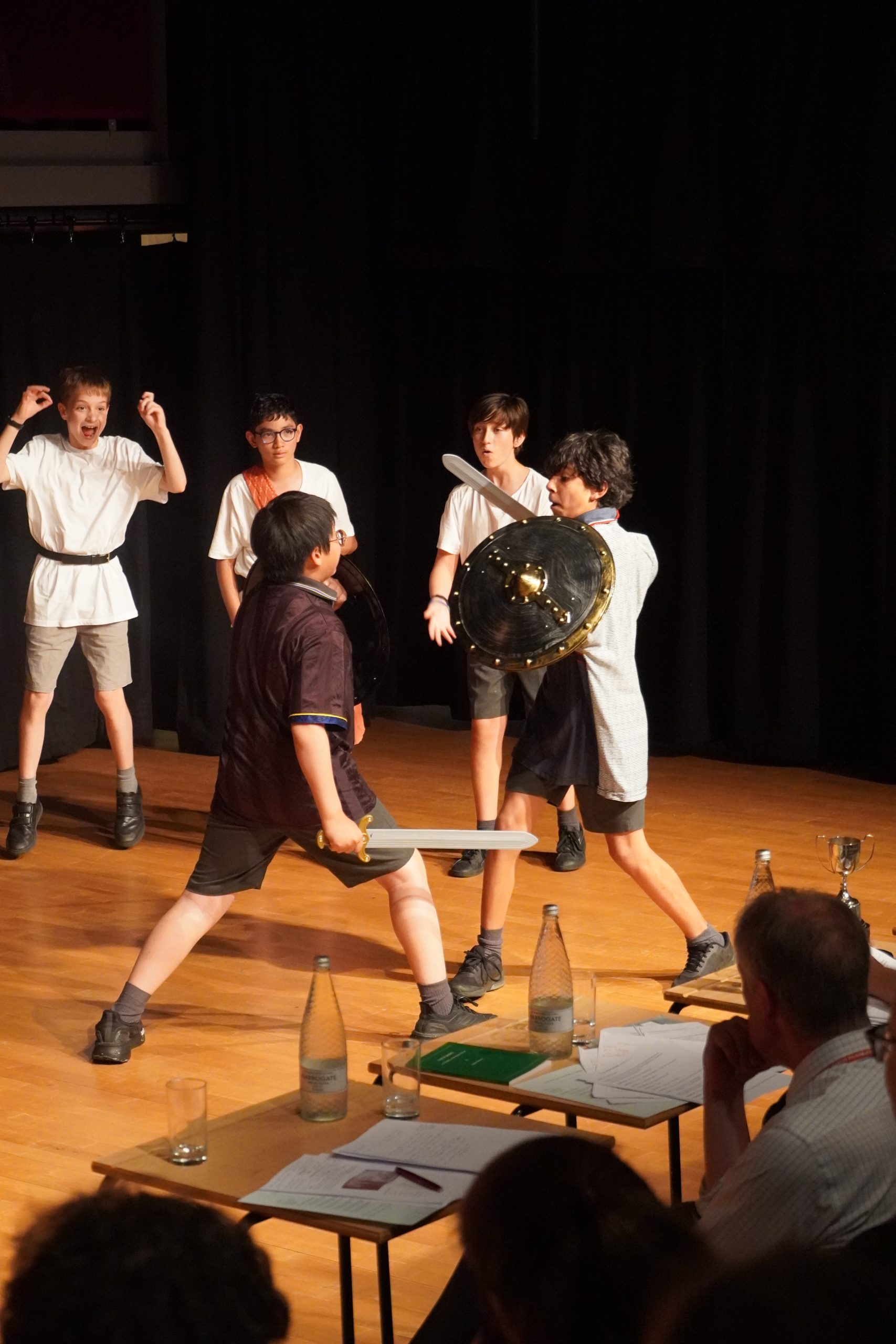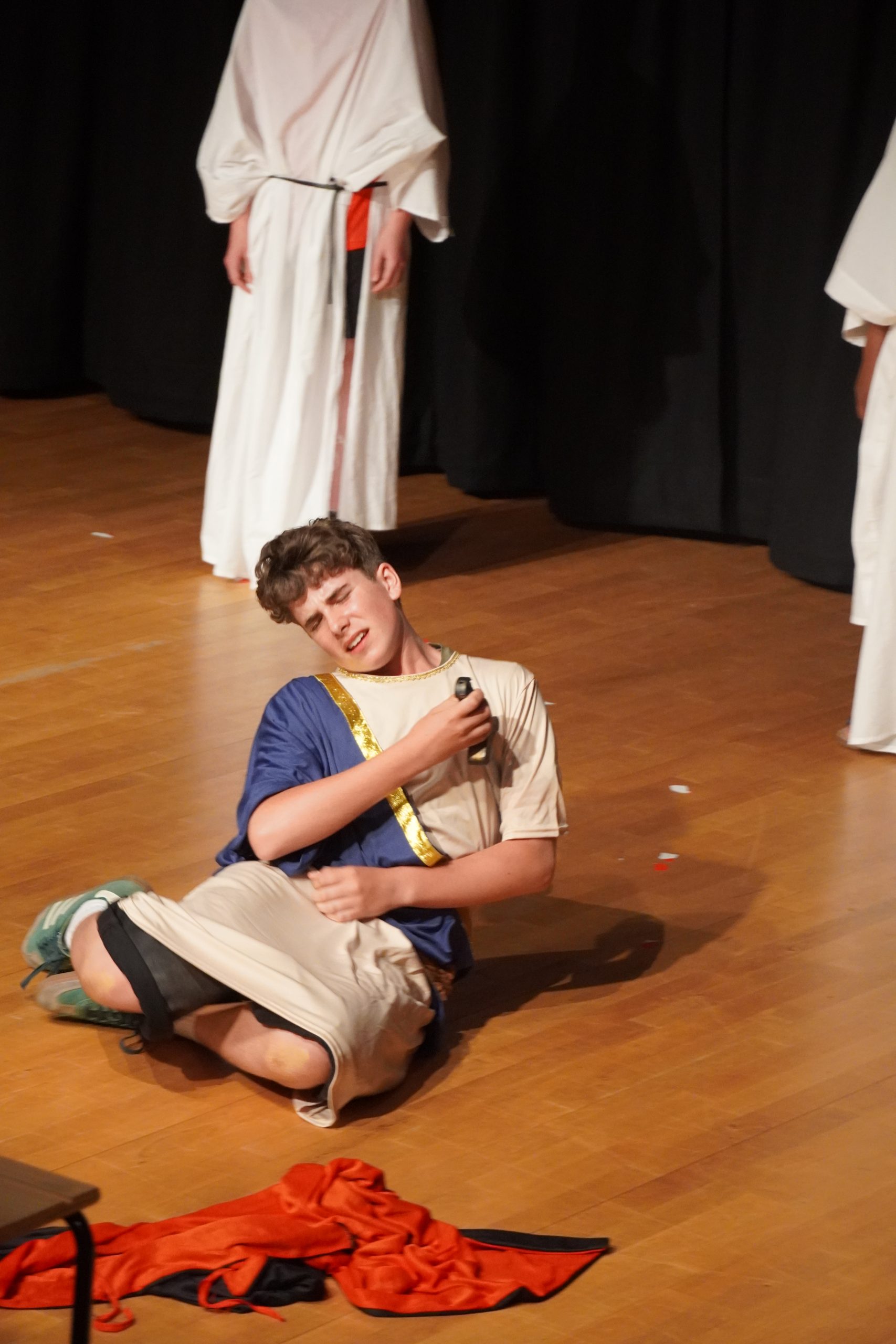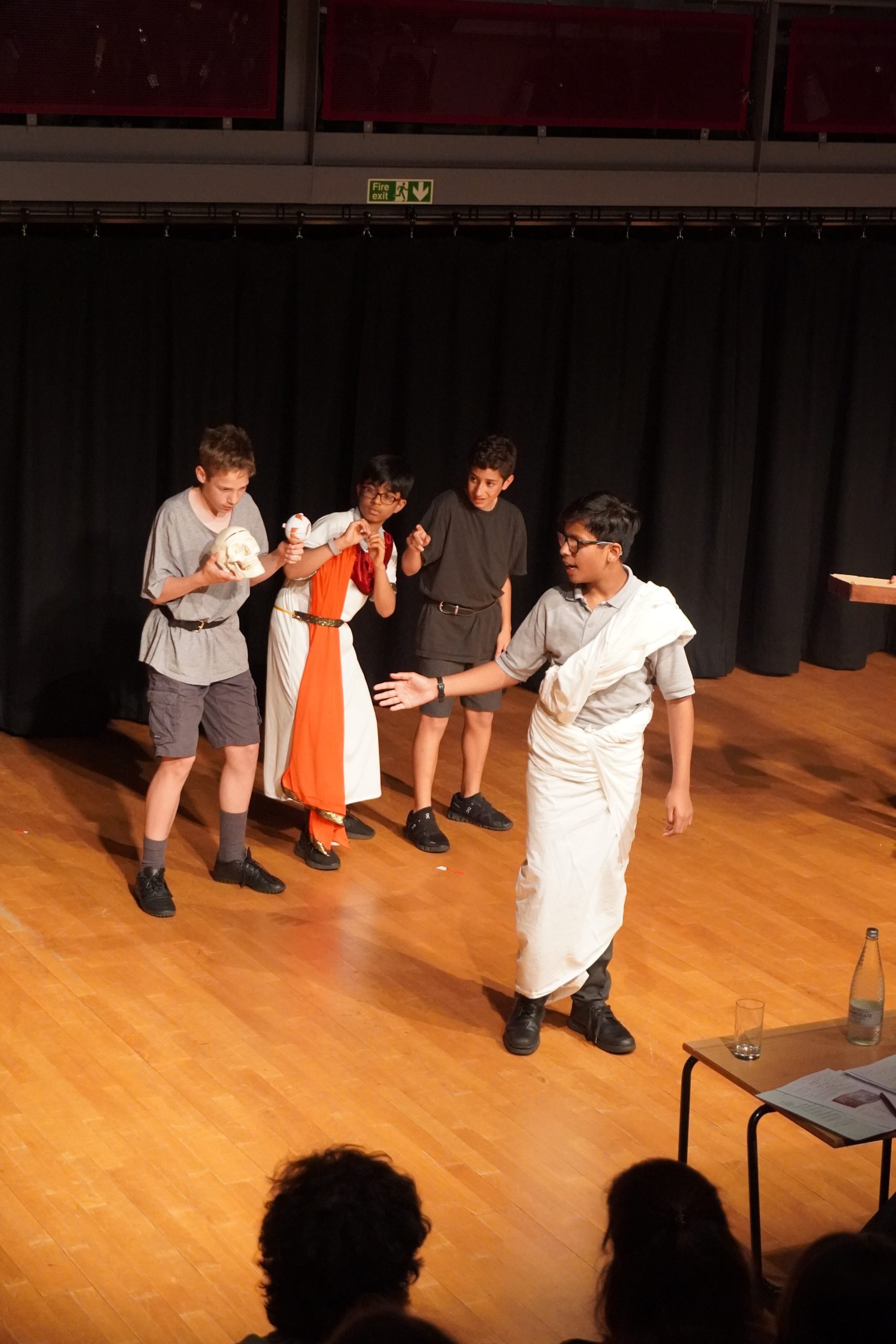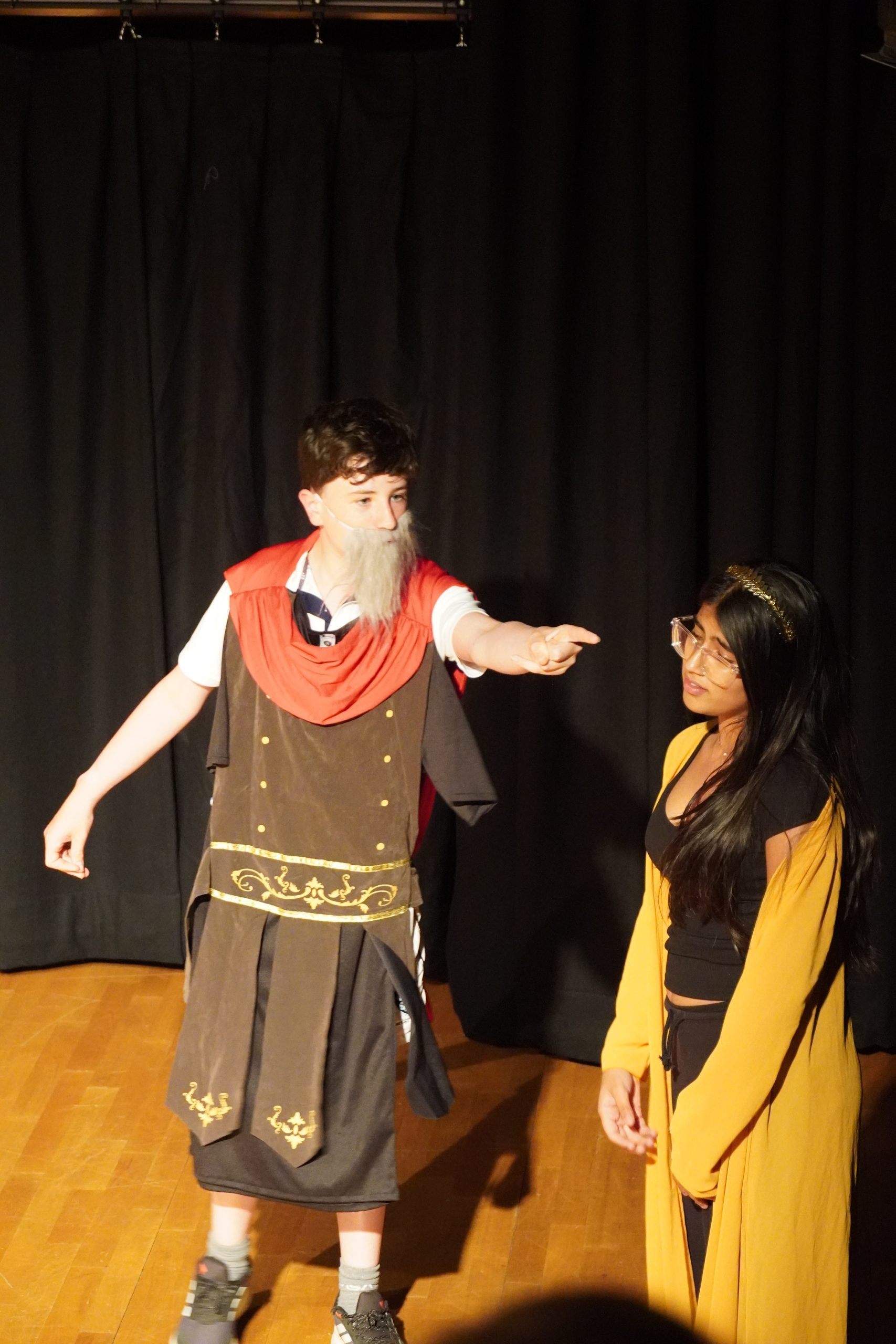A tradition that began 35 years ago reached a new milestone as Westminster Under School’s Ludi Scaenici celebrated its anniversary with a varied programme of spoken-Latin plays, spanning myth, fable and modern parody.
The annual event welcomed pupils from visiting schools once again, with entries including an international contribution from Italy’s Liceo Galilei. This year’s judges awarded the winning trophy to our Year 7 WUS performers for Gladiator Gallicus, a Roman reimagining of the famous Eric Cantona moment, praised for their clear diction, pace and teamwork.
Founded by our Classics teacher Mr Downey in 1990 and hosted at Westminster Under School ever since, Ludi Scaenici has become an annual highlight, championing Latin as a language to be spoken, performed and enjoyed collaboratively.
This milestone edition brought together six participating schools and, for the first time in its history, welcomed an international entrant. Liceo Galilei, from Adria in northern Italy, submitted a filmed production of Non Illam Sed Ollam, a witty, inventive performance that was warmly received by the audience during this long-standing celebration of Latin.
The standards this year were very high, with impressive performances from Trinity School, City of London School for Girls and Forest School, all noted for their clear Latin enunciation. Approaches varied widely and the programme offered a rich variety: classical tales inspired by Ovid sat alongside entirely original pieces, while others drew on fable or satire.
Pupils of every age brought to life material that had been rehearsed, translated and refined over many weeks. ‘We created something new, the product of months of work and dedication,’ said Seb and Freddie, Year 9 pupils from Trinity School, whose original English script they had carefully translated into Latin.
At City of London School for Girls, a script written and directed by sixth-form students was handed over to a cast of their Year 7s, a process that, according to Agatha and Erin, Year 12, ‘showcased the creativity, resilience and enthusiasm of our young, budding classicists’.
Ms Una O’Gara, Latin teacher at Buxlow Preparatory School, the youngest participants in this year’s competition, shared, ‘Learning the play in Latin not only supported the pupils’ performing skills, but also extended their understanding of the language. The importance of Latin as a foundation for learning cannot be underestimated.’
For many pupils, the process was as much about connection and teamwork as it was about language. Ollie, Year 7, shared, ‘It wasn’t just acting, it was a chance to deepen our knowledge of Roman history and pronunciation too.’
Representing WUS, a group of fourteen Year 7 pupils performed ‘Gladiator Gallicus’, a creative reimagining set in Roman times of the famous Eric Cantona football scandal. Through excellent teamwork, the group delivered a polished and engaging performance, complete with what is fast becoming our trademark dramatic finale: a death on stage! Judges, Holly Edwards, Sarah Harrison, Phil de May, and John Taylor, praised its ‘well-defined freeze frames’, ‘confident enunciation’ and ‘clear sense of character and place’.
‘Everyone put in their utmost commitment,’ said Aryan,Year 7. ‘It was so great in the end and all our hard work paid off.’
Dr Bamfield, teacher of Classics at WUS, noted, ‘Throughout the competition, pupils demonstrated not only technical ability but imagination, timing and enthusiasm, proof that Latin, far from being a static subject, continues to offer space for humour, interpretation and shared creativity. The Classics Department looks forward to building on this legacy and to welcoming even more schools, voices and interpretations in the years ahead.’
